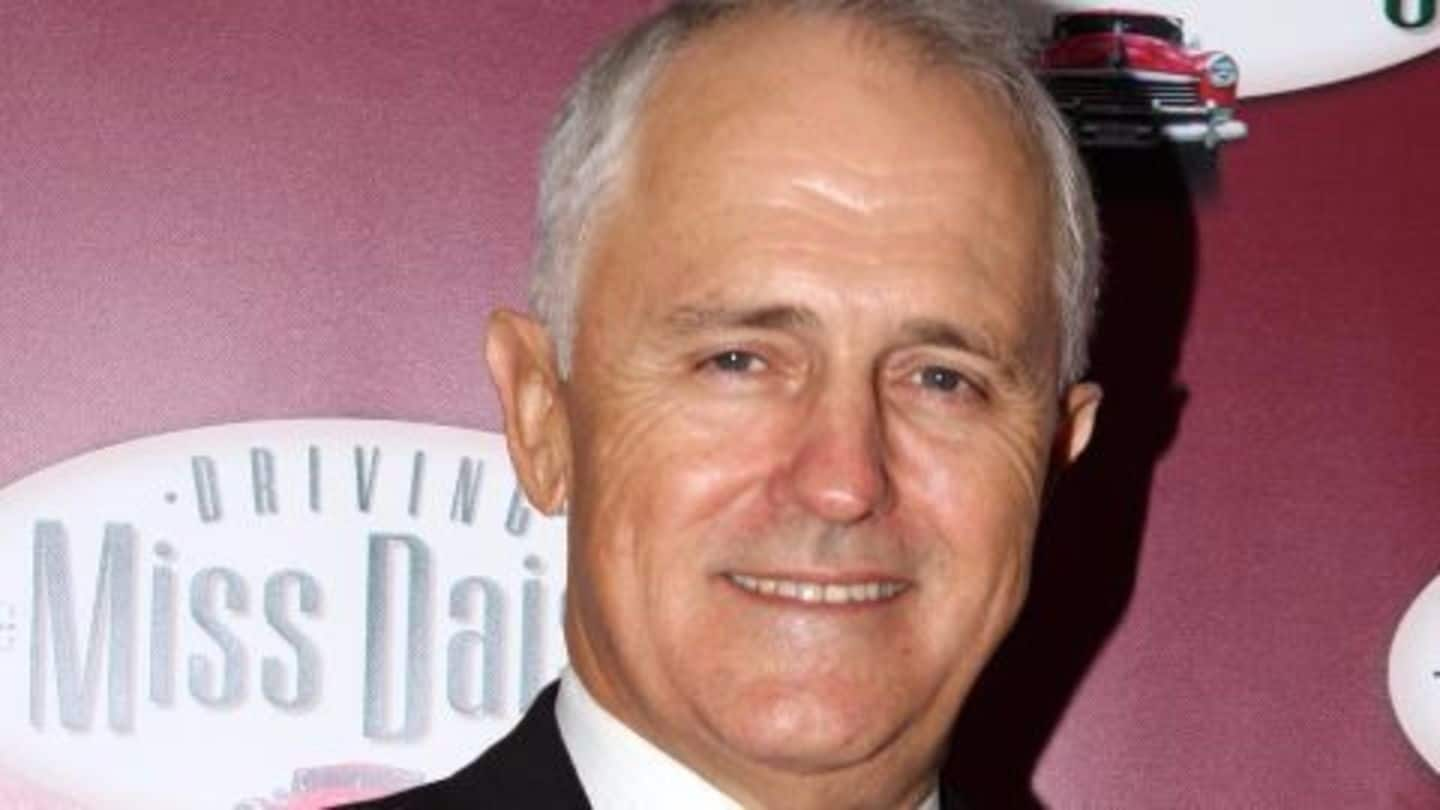
Australia to go to polls on 2 July
What's the story
Australia will go to polls on 2 July 2016, after Prime Minister Malcolm Turnbull announced the dissolution of parliament. Prime Minister Turnbull was compelled to call the election several months early after the country's upper house repeatedly blocked legislation. The move forced him to call a double dissolution of parliament in accordance with conditions set forth under Australian election laws.
Background
The tumultuous politics in Australia
In 2013, a Liberal coalition defeated the 6 year rule of Australia's Labor party, bringing in Tony Abott's government. In 2015, Abott was challenged for party leadership and was overthrown by Malcolm Turnbull, who became the new head of the Liberal party and Prime Minister. However, Turnbull soon fell victim to internal party politics which significantly weakened his political position.
Personal
Parliamentary proceedings did not help Turbull's position
A year into power, Malcolm Turnbull found it difficult to secure enough votes to get several key legislations passed by both houses in Australia. This drastically affected his position as a leader in the public as well as within his own party.
Double Dissolution
What is double dissolution?
Australia's constitution allows for elections to be called when the Senate twice blocks a piece of legislation that has been passed by the lower house. Both houses of parliament are dissolved by the Governor General and fresh elections are conducted. As of May 2016, there were four bills which met the requirements of Section 57 of the constitution for a double dissolution.
Information
What triggered the double dissolution?
Four bills, including the Clean Energy Finance Corporation (Abolition) Bill 2013, Fair Work (Registered Organisations) Amendment Bill 2014, Building and Construction Industry (Consequential and Transitional Provisions) Bill 2013 and the Building and Construction Industry (Improving Productivity) Bill 2013 were blocked repeatedly by the Australian Senate.
Issues
Leaders and key issues being contested
According to experts, education, health and the economy will be key policy battle grounds for Liberal Party leader malcolm Turnbull and Labor's Bill Shorten. Turnbull will position the Liberals as the party best placed to transition Australia from the mining boom through to a new phase of economic growth. However, Labor is expected to make a strong pitch for lower taxes and improved healthcare.